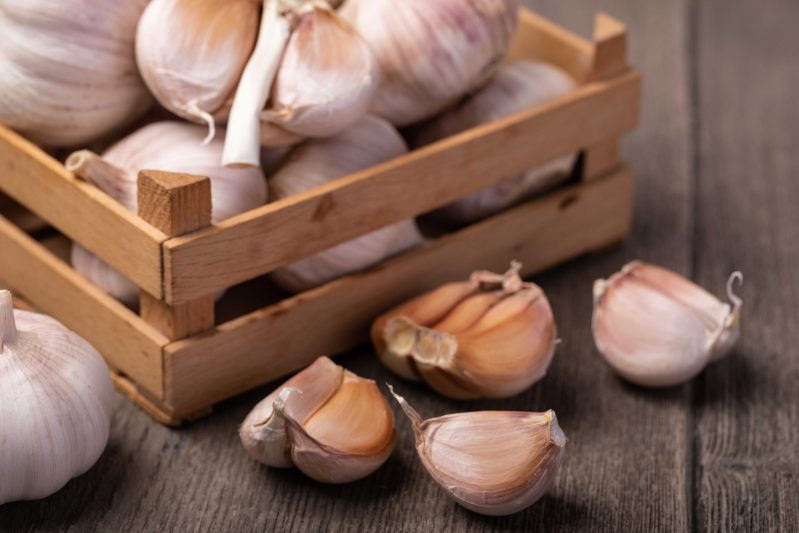Elephant Garlic
Elephant Garlic
Elephant garlic (Allium ampeloprasum) is often confused with ‘regular garlic’ (the type that can be up one-fourth smaller) because of its resemblance in look, structure and taste. But, this extremely large garlic-resembling-imposter is much less pungent in taste to its look-a-like counterpart; however, it does have many of the same health qualities as traditional garlic.
One of its health properties is its ant-bacterial ability to kill harmful bacterial overgrowth in the gut without eliminating the friendly probiotics, like regular garlic does. It can be eaten daily without doing digestive harm, and often without causing acid reflux, bloating, and garlic smelling odor that regular garlic produce.
Contrary to popular, elephant garlic’s flavor profile is not stronger than ordinary garlic. Its flavor is milder and sweeter, and still packs an energetic punch in taste as well as in the realm of health and wellness!
Elephant garlic is not actually garlic—it’s genetically much more closely related to leeks. For those that do not like ordinary garlic, try elephant garlic and see if you enjoy it, because it has so many healthy qualities that your body might be craving.
Just like regular garlic, elephant garlic contains the chemical compound “allicin” which has been scientifically shown to have antibacterial & antioxidant properties and can suppress/inhibit certain types of cancers. Allicin, the compound responsible for garlic’s unique odor, is one of the many powerhouses of its nutrient profile, consisting of flavonoids, minerals, proteins, and vitamin B which collectively help to enhance metabolism, provide prebiotics to enhance probiotic balance, while killing other harmful microbes within the body.

Origin: It can be said that Elephant Garlic has originated from Central Asia.
Bulb: It has very big bulbs which may weigh more than a pound individually growing for about 5 inches diagonally. A single clove grows more than 1 inch in width and 2 inches in length.
Height: The plant grows up to a height of 25 to 35 inches.
Taste: Cloves of elephant garlic taste sweet. It leaves behind a discrete aftertaste in your mouth.
Elephant Garlic vs Regular Garlic
- Ordinary garlic has a pungent flavor whereas elephant variety is milder in taste and flavor.
- The former is bulky and the latter is smaller, often resembling a golf ball.
- Regular garlic is white but the color of the other one is slightly yellowish.
- The giant garlic is a hardy crop, unlike its true variety which is not resistant to many conditions.
Elephant garlic is full of healthy nutrients. Elephant garlic bulbs are an excellent source of vitamins E, C, and A. Similar to conventional garlic, Elephant garlic also contains allicin, which has been known for its antibacterial properties.
Elephant garlic is linked with the onion genus having mild flavor and taste. It is not true garlic as it belongs to the garden leek species. Bulbs of this garlic form into several cloves and have other features like the leek. This large-sized vegetable can be easily blended in a number of recipes in raw and blanched form. The antimicrobial activity of elephant garlic was stronger than ampicillin.

